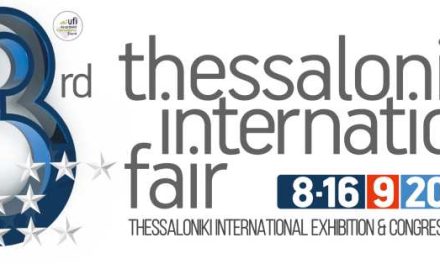Among the Greek industries promising growth, investment and profits, even during these times of austerity, is Nanotechnology. At the heart of the nanotechnology miracle in Greece is the internationally well known Laboratory for Thin Films, Nanosystems & Nanometrology (LTFN), at the Physics Department of Aristotle University of Thessaloniki (AUTh). Right now, LTFN is coordinating a very significant European Research and Development Project called “Smartonics”, with a consortium of 18 institutions – Universities, Research Institutes and companies. The target of Smartronics is the development of Pilot lines that will combine smart technologies with smart nanomaterials for creating Organic Electronic (OE) devices.
The first two Pilot production lines of the Smartonics project are up at the Center of Organic and Printed Electronics, a research hub situated on Thessaloniki’s outskirts that is also available for use by private nanotechnology companies. Examples of products in line include building materials with integrated heating and cooling circuits, intelligent clothing, flexible photovoltaics and nanomedicine implants. “If the Smartonics program gives us a positive result, that could be the first step towards the introduction of OPV (Organic PhotoVoltaics) in the automotive industry”, said Luka Belfort, researcher at FIAT Reseach Center (CRF) in Italy, one of the partners of the Smartronics project. If all goes well, by 2016 we might see the incorporation of flexible organic photovoltaics made in Greece, on the roof of a Fiat car.
According to LTFN’s chief coordinator, professor Stergios Logothetidis, nanotechnology products are “…about to create a global market with a turnover of $4 trillion by 2019: so far, 160,000 nanotechnology businesses in the world have grown rapidly”. In reference to Greece, Logothetidis notes that the development of organic electronics production systems will create many new jobs for scientists and specialists.
LTFN coordinates several EU/National Projects, oversees the Hellenic Organic & Printed Electronics Association (HOPE-A), and organizes annually the NANOTEXNOLOGY multi-event, which combines International Conferences, Summer Schools and Exhibitions on Nanotechnology and Organic Electronics. LTFN is also the driving force behind Nano|Net, an international network of University Labs, Research Institutes, companies, hospitals etc, whose main purpose is to reinforce and promote Nanotechnologies and NanoBiotechnologies in Greece, Europe and worldwide, through an interscientific approach.
Among the EU projects coordinated by LTFN are GLADIATOR and GRElect, whose aim is to improve the manufacturing of graphene and to make it a viable material in the mass production of organic electronics. Northern Greek nanotechnology start-ups like OET and BL-NanoBiomed participate in these projects, forming fruitful synergies between academia and the private sector.
Recent conferences in Thessaloniki:Nanotechnology 2015, 7th RoleMak Workshop: “Creating the Organic & Printed Electronics Industry in Greece“
TAGS: INNOVATION | SCIENCE & TECHNOLOGY













